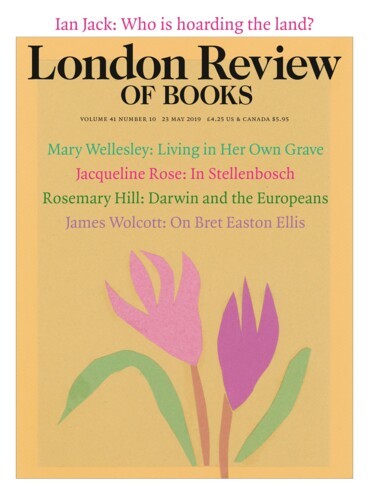for Duncan McLean
Seven years we’d waited;
three bairns lost inside, and two born dead.
Rab blamed himself, then me,
then the crone on the next island, then the wee folk –
the sithchean – the fair folk, the peerie folk.
So when I started to show, for certain, he went to work:
pulled a handful of nails from the ruined jetty, gathered
pieces of oak and elder and the sacred rowan;
began filling a bucket with stail; laid out
the reaping hook, the Bible, his silver sixpence, the gold ring,
and with his joiner’s tools made us a cradle
of the holy wood, nailed it round with iron.
As my time grew close, he drew water from the well,
collected mussel-shells to hang from the beams with bindweed
so they’d clack above the crib;
mistletoe and the sixpence for the bed, and leaves of the mòthan
to spread out under me, as I came to fruit.
There was no minister on these rocks and no saining for me here,
so Rab had a wreath of rowan over the bed, the Bible
held open by the rusted shears that made the shape of the cross,
the bucket of maistir there
against the grey folk, the noiseless ones,
and a cup of well-water with the gold ring in it
for the three mouthfuls that would save me.
And saved we were.
He was beautiful, our son: blue-eyed, fair; fresh as meltwater.
I took him out one morning, to the machair, laying him down
on a cushion of clover at the marram’s edge
where he tilted his head to hear, like a bird;
watched, as I picked spring flowers – marsh marigolds,
buttercups, pansies, primroses, silverweed, vetch,
ragged-robin, yellow rattle, eyebrights, thrift.
It was a false spring, though, that year;
the cold held on, deep-rooted in the ground.
We walked a lit candle three times round the crib;
washed him three times in saltwater, passed him
three times over the fire,
but saw he was wrong:
always feeding, always famished. Ravenous, thirsty,
he took more than both of us, but never grew.
When I so much as touched him, he cried out –
girning and yowling all day and night, like a snared rabbit.
Rab wouldn’t look at him, wouldn’t use his name,
called him misgrown; a mimmerkin. Worst of all: spelled.
‘We must cast the faery out,’ he said.
‘In their hollow hills – I’ve heard men tell – their floors
are paved with the teeth of human children.’
He put him in a foxglove bath, brought in a shovel
heavy with salt, a cross drawn through it,
laid it on the fire to burn.
He would have burnt the child if I’d let him.
‘Our boy’s been changed, taken away –
this creature left behind, to eat us empty.
It’s either trial by fire or water, you decide.’
I carried him down to the beach that evening, the tide coming in
and my heart in flitters. As I laid him down at the sea’s lip
there was a rustling sound, like wind in the trees
or a hawk, stooping to the kill,
and I looked over the water to the far skerries
to see a grey-haired man, levering himself onto the rock.
The way he came
is the way he’s now gone back.
My mother always said we wear our dreams – all living things:
the goshawk shows on his breast a flock of geese,
the mountain hare becomes snow in winter; the mackerel
carries the streamoury of the north-dancers on its back,
the silver-green and barred black
that drains to grey when it’s taken from the sea.
So our son had eyes the blue of the far places,
and wore his skin like water.
For some it is not long, the waiting, for that
decay of light; when all is flown, all faded, washed away.
When I reached the cottage, the crib was still empty.
The crib lies empty still.
Send Letters To:
The Editor
London Review of Books,
28 Little Russell Street
London, WC1A 2HN
letters@lrb.co.uk
Please include name, address, and a telephone number.

